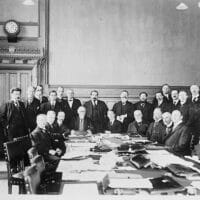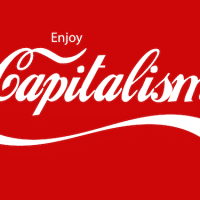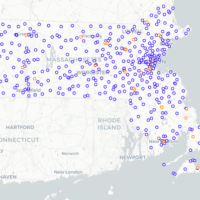-
Between the sword and the neck: why the Arab streets rejects Zionist normalization with Arab states
U.S. media outlets and politicians have nearly all parroted the same praises of the recent “peace agreements” between Israel and the repressive U.S.-backed governments of the United Arab Emirates, Bahrain, Sudan, and Morocco.
-
Money on the Left: The Journal featuring “Food, Money & Democracy”
Benjamin C. Wilson, Taylor Reid, and Max Sussman join the podcast to discuss their forthcoming co-written essay, “Food, Money, and Democracy: Cultivating Collective Provisioning for Resilient and Equitable Communities of Work.” Inaugurating our new journal, Money on the Left: History, Theory, Practice, the article politicizes what Sanjukta Paul and Nathan Tankus term “coordination rights” across monetary and production sectors and focuses on the coordination of food systems, in particular. Coordination rights are fundamental to the process of building resilient communities, our guests argue, determining whether social provisioning systems are “collective” or “concentrated.”
-
The Second International’s Conflicted Legacy
Virtually all socialists today are descendants of the Second International of 1889 to 1914. Yet its legacy remains sharply disputed. Some associate this International with its betrayal of socialist principles at the start of World War I, and think there is little reason to study it any further. Others see the prewar Second International as a model to be re-created. Both assessments are mistaken.
-
The Supreme Court, rights, and judicial abdication
The Supreme Court Justices have left town for the summer. Their sense of justice departed a few months ago, along with their fidelity to the history and text of the Constitution.
-
Capitalism Is the Real Information War
Under capitalism, corporate dishonesty has become so commonplace that most of us take it for granted.
-
Colombia Votes in Its First Left Government
On June 19, 2022, long lines brought 39 million Colombian (out of a population of 51 million) to vote in their presidential election. In rural areas, where the vote is often suppressed due to desolation or violence, the lines seemed longest.
-
The lethality of Washington’s Global Monroe Doctrine: The Twenty-Fourth Newsletter (2022)
This past week, as part of its policy to dominate the American hemisphere, the United States government organised the 9th Summit of the Americas in Los Angeles. U.S. President Joe Biden made it clear early on that three countries in the hemisphere (Cuba, Nicaragua, and Venezuela) would not be invited to the event, claiming that they are not democracies.
-
Berlin Munich Kyiv: Berlin Bulletin No. 202, June 13, 2022
The tide of public opinion in Germany is as overpowering–and changeable – as elsewhere: “Stop the Russian invasion!“ – “Defend Ukraine!”–“Send money”–“More, bigger, further-reaching weapons!”- “Defeat Russia!” Sustaining this tide is an all-encompassing media campaign.
-
Massachusetts’ Imperialist Landscape
“Cannibalism,” as writer Jack Forbes (Powhatan-Renapé/Delaware-Lenápe) defined it, “is the consuming of another’s life for one’s own private purpose or profit.”
-
“We are not done”: Policy, protections, and the people’s struggle for Pride
June is Pride Month. It is a time to celebrate. It’s also a time to remember the struggle for equal rights, a history we are continually encouraged to forsake, fragment, and forget.
-
Dossier no. 53: This land is the land of our ancestors
The labour relations on South African farms continue to maintain race, gender, and class inequalities as a central character of work and life.
-
Mapping U.S. Imperialism
This article deals with U.S. imperialism since World War 2. It is critical to acknowledge that U.S. imperialism emanates both ideologically and materially from the crime of colonialism on this continent which has killed over 100 million indigenous people and approximately 150 million African people over the past 500 years.
-
A second left-wing progressive wave is emerging in Latin America
The 9th Summit of the Americas, scheduled to take place in Los Angeles in June, remains uncertain. Since the Biden administration has not invited the leaders of Cuba, Nicaragua, and Venezuela on the grounds of “democracy issues”, the leaders of Cuba, Bolivia, Mexico, Argentina, and other countries have expressed the possibility of refusing to participate.
-
Culture and existence: the message from Silger
It is quite common to think of the black man in the United States who finds himself in a moment of danger. But let us talk about the adivasi people in India who are in a similar situation. Not just danger, but they — their life, culture, forests and land — are facing a situation of accelerated danger.
-
Reading, writing, ‘rithmetic of rifles (for Uvalde and other schools…)
for Uvalde and other schools…
-
Municipal Money After Crypto: Austin Edition
Mike Siegel and Mike Lewis join Money on the Left to discuss municipal currency politics. The conversation focuses, in particular, on our guests’ recent success in Austin, Texas, where they helped critically rewrite anti-public and anti-environmental crypto legislation to open fresh possibilities for public banking and payments that support local communities and ecologies.
-
The Impasse of the Latin American Left
As the Left in power returns, the lessons of the Pink Tide have become increasingly relevant. Recognizing governments’ well-conceived policies as well as their errors is key to understanding the comeback.
-
Who is leading the United States to war?
The world is sensing the United States’s growing rapacious intent for war. Amid the development of the Ukraine crisis, the United States and NATO have been attempting to escalate their proxy war with Russia while continuing to intensify their siege and provocations against China.
-
Go to Yan’an: culture and national liberation
The Chinese communist base area of Yan’an was a literal and metaphorical stage for envisioning, experimenting, and building a new society and a new human being.
-
Turning the Earth into money w/ John Bellamy Foster
This week, Grace talks to John Bellamy Foster, professor of sociology at the University of Oregon and editor of Monthly Review. They discuss Marx’s theory of nature and the relationship between humanity and nature under capitalism.




















